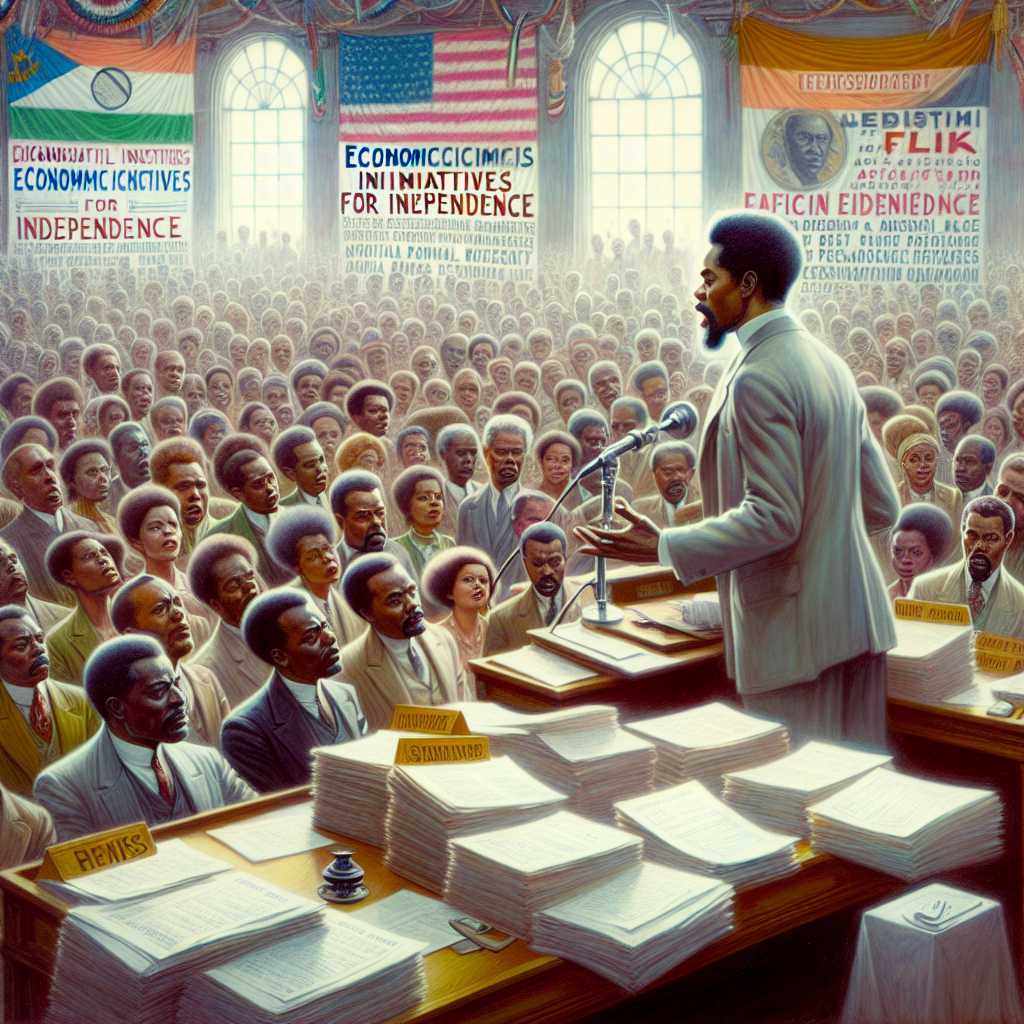The Life and Legacy of Marcus Garvey: Champion of Black Nationalism and Pan-Africanism
Marcus Garvey was a foremost black nationalist leader who galvanized a global movement for the empowerment of African descendants through his advocacy for Black pride, economic self-sufficiency, and the return to ancestral African homelands. His philosophy and activism left a significant imprint on the history of the African diaspora and provided an ideological foundation for various civil rights movements across the world.
Early Life and Inspiration
Marcus Moziah Garvey was born on August 17, 1887, in St. Ann’s Bay, Jamaica, during a time when the island was under British colonial rule. Garvey’s early life set the stage for his later activism; being born into a modest family, he experienced the sting of racial segregation and economic disadvantage firsthand. This environment incubated his desire to see people of African descent achieve greater political power and improved living conditions.
As a young adult, Garvey traveled throughout Central America and lived in London for a period, observations during these travels confirmed his conviction that black individuals faced widespread racism and were often relegated to the most menial jobs. These experiences inspired him to develop his philosophy of Black Nationalism—a deputation of racial pride, unity, and self-determination.
Launching the Universal Negro Improvement Association (UNIA)
In 1914, Marcus Garvey established the Universal Negro Improvement Association (UNIA) in Jamaica with the ambition of uniting all of African ancestry into “one great body to establish a country and absolute government of their own.” After moving to the United States in 1916 at the encouragement of Booker T. Washington, Garvey captured the American audience with his compelling orations, calling for the liberation of African nations from colonial rule and for an end to racial discrimination.
His dynamic personality and determination ultimately led the UNIA to become one of the largest organized movements in African-American history. The organization sought to elevate the status of people of African ancestry by creating economic independence through business enterprises such as the Negro Factories Corporation and the Black Star Line shipping company—endeavors meant to facilitate trade among the global African diaspora.
Influence on Pan-Africanism and Civil Rights
Garvey’s influence extended to broad-scale international advocacy. His activism helped ignite a worldwide sensitivity towards African issues, contributing to an early Pan-African consciousness which reverberated ideas of African liberation, emancipation from colonialism, and the cultural bonding among people of African descent.
In the United States, he is often regarded as a progenitor of Civil Rights movements for his contributive belief in social equality and black empowerment. His call for unity among African Americans inspired numerous future leaders such as Malcolm X and Martin Luther King Jr., who carried forward themes initially popularized by Garvey’s efforts. The slogan “Africa for Africans” became a ringing endorsement for generations desiring affirmation in their racial identity and heritage.
Controversy, Imprisonment, and Later Life
Despite Garvey’s significant following and upliftment efforts, his career was not without controversy. He was seen by some contemporaries as an adversary due to his promotion of black separatism—at odds with activists focused on integration—casting him as at goal variance within circles aiming at harmonizing race relations. A noted friction was his tense relationship with W.E.B. Du Bois, a leading figure in the National Association for the Advancement of Colored People (NAACP).
Additionally, his leadership encountered legal challenges; notably, he was convicted of mail fraud in connection with the operations of the Black Star Line in 1923. Many historians and supporters view his trial and imprisonment as politically motivated, designed by J. Edgar Hoover’s Bureau of Investigation to suppress Garvey’s enriching influence upon African-Americans.
After serving a portion of his sentence, Garvey’s conviction was commuted by President Calvin Coolidge, leading to his deportation back to Jamaica in 1927. He never returned to America but continued his activism until his death in London on June 10, 1940.
Notes
Image Description
An artistic depiction or photograph showcasing Marcus Garvey delivering a speech before a captivated audience displaying elements symbolic to his cause: piles administrative papers labeled “Negro Factories Corporation” or “Black Star Line,” which reference his economic initiatives for Black independence; additionally portrayed could be representations such as UNIA banners or insignia calling for unity among African descendants worldwide.
q74Sy

